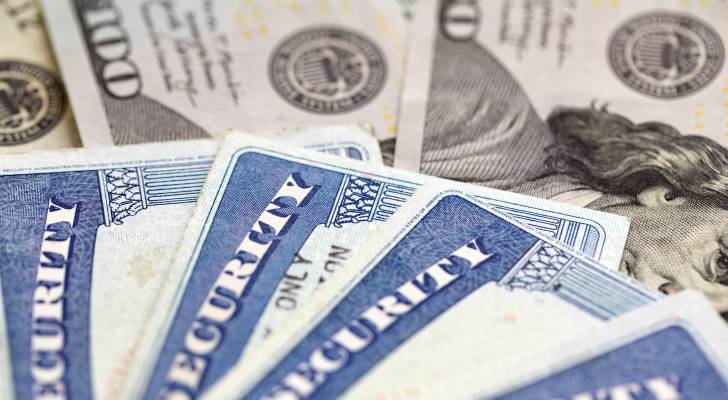Scammers List Social Security Accounts Online: Here’s How to Shield Your Benefit Checks

Georgia State University professor David Maimon, head of the school's evidence-based cybersecurity research group, says he's found Social Security scammer accounts for sale online.
“You can see the name, date and the balance,” he told Channel 2 Action News reported on March 24 about a scheme aimed at seizing control of people’s Social Security benefits. "The primary objective of this fraud is to gain access to these individuals' Social Security payments," as stated in the report.
Don't miss
- I'm 49 years old and have nothing saved for retirement — what should I do? Don't panic. Here are 5 of the easiest ways you can catch up (and fast)
- Thanks to Jeff Bezos, you can currently start your journey as a landlord with just $100 —and no, you won’t be responsible for handling tenants or repairing freezers. Here’s how it works:
- Earn possible quarterly income from this $1 billion private real estate fund — regardless of whether you're a millionaire or not. Here’s how you can begin with just $10 at hand.
Maimon sent a video to the local broadcaster, which allegedly showed access to a sales account and exposed a beneficiary's private information, such as the size of their monthly payments — specifically, $1,855.30 in this instance.
Therefore, could you explain precisely how this scam operates, and what steps can Americans take to safeguard their benefits?
What is the method behind how this fraud operates?
How can someone benefit from purchasing access to a stranger’s Social Security account? According to Maimon, it’s disturbingly simple.
"They can simply visit the Social Security Administration website, alter the information online, and redirect the funds to a new—and fraudulent—John Doe account," Maimon said.
Fraudsters can obtain entry into online accounts using multiple methods, such as compromised login information and effective phishing attacks .
This is the kind of fraud Trump administration indicates it has been attempting to stop. A fresh initiative from the Social Security Administration (SSA) policy was scheduled to launch on April 14. The initiative was designed to reduce identity theft by mandating face-to-face verification for individuals who couldn’t apply for services online, whereas before, one could confirm their identity via telephone. However, the agency backed down resulting from these modifications because of accessibility issues.
Read more: Looking for an additional $1,300,000 for your retirement? According to Dave Ramsey, this could be achievable. This 7-step strategy 'guarantees success each time' for eliminating debt and achieving wealth in America. — and that ‘anyone’ can do it
Secure your Social Security account
If you're looking to safeguard your Social Security account against fraud, consider following these steps.
Regularly check your account
If you have a “my Social Security” account, review your earnings history, personal information and payment status often. Any unfamiliar changes could be a sign your account has been compromised. Consider printing your benefits report so you can easily spot changes.
Don't click on suspicious links
Scam emails and texts pretending to be from the SSA might ask you to "confirm" your identity by clicking on a provided link and signing in. Avoid falling for this trap—always log into your account via the legitimate website and refrain from entering personal information through unexpected links.
Utilize two-step verification whenever feasible.
The Social Security Administration enables users to activate two-step verification (also referred to as multi-factor authentication) when accessing their accounts for enhanced security. Upon enabling this feature, you must provide a code delivered to your mobile device or email alongside your usual login credentials like your username and password. This extra step provides an additional layer of defense against unauthorized access to your account.
Avoid handing out money to safeguard your possessions.
Another common scam involves in-person visits from someone claiming to be law enforcement. Scammers pretending to be police or government agents may claim your assets are “at risk” and urge you to convert money into gold or gift cards for safekeeping. This is a classic scam. Real agencies will never ask for payment or offer protection this way.
Get updates about emerging scams
Crooks flourish during periods of transition, and schemes related to the SSA are becoming more sophisticated. Enroll in fraud notifications, stay updated with SSA security bulletins, and follow reliable consumer protection resources like those from the Federal Communications Commission (FCC) .
Speak with someone you trust before implementing alterations.
Certain swindlers rely on creating a sense of urgency along with isolating victims to carry out their scams successfully. Should you find yourself under pressure to perform actions such as altering your direct deposit details or reacting to an unforeseen notification, consult with a trusted friend or relative beforehand.
The most effective safeguard against Social Security scams is being cautious and taking preventive measures, which can distinguish a stable retirement from monetary turmoil.
What to read next
- Can't afford to settle your tax bill with the IRS in 2025? You might qualify for their 'simplified' payment plan right now. Here’s how it operates and how it might possibly save you thousands.
- Here are 5 Essential Items That Americans (Almost) Always Pay Too Much For —and they soon come to regret it. How many people are causing you pain?
- Robert Kiyosaki predicts an approaching 'Great Depression' in the U.S., which could lead to many Americans becoming impoverished. However, he suggests strategies for navigating this situation. 2 'easy-money' assets will bring in great wealth . How to get in now
The content of this article serves purely informational purposes and should not be considered advisory. It comes with no guarantee or warranty whatsoever.
0 Response to "Scammers List Social Security Accounts Online: Here’s How to Shield Your Benefit Checks"
Post a Comment